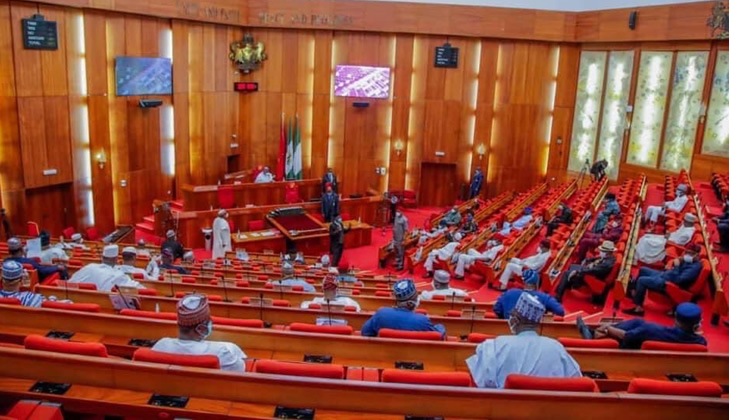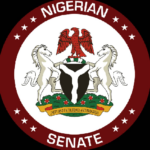The Senate, on Tuesday, confirmed the appointment of immediate former service chiefs as non-career ambassadors- designate.
The nominees are: General Abayomi Olonisakin (retd) (Ekiti); Lt-Gen. Tukur Buratai (retd) (Borno); Vice Admiral Ibok- Ette Ibas (retd) (Cross River); Air Vice Marshal Sadique Abubakar (retd) (Bauchi); and Air Vice Marshal Muhammad S. Usman (Rtd) (Kano).
- Anklets: The most controversial fashion piece in Nigeria
- New COVID-19 variant found in Nigeria, 15 others – NCDC
Their confirmation followed consideration of the report of the Senate Committee on Foreign Affairs, chaired by Senator Adamu Bulkachuwa (APC, Bauchi).
An attempt by the Minority Leader, Senator Enyinnaya Abaribe, to draw the attention of his colleagues to a petition against their confirmation was stopped by the Senate President, Ahmad Lawan.
Abaribe had asked Bulkachuwa to explain why the petition against them was dismissed but Lawan said the petition lacked merit.
The appointments
President Muhammadu Buhari had, on February 4, 2021, appointed the retired service chiefs as a non-career ambassador.
The president appointed the Ex-Service Chiefs in 2015 and refused to bow to the pressure of relieving them of their duties until they “voluntarily resigned”.
Due to the rising insecurity across the country, different stakeholders had asked the president to inject fresh hands into the war against insecurity.
Late January, the President finally announced Maj Gen LEO Irabor as Chief of Defence Staff; Maj Gen I Attahiru, Chief of Army Staff; Rear Adm AZ Gambo, Chief of Naval Staff; and AVM IO Amao as Chief of Air Staff.
’20 years to eliminate Boko Haram’
Buratai had, during the confirmation hearing last week, said it may take Nigeria another 20 years to eliminate Boko Haram insurgents.
He said the terrorists have, for a long time, indoctrinated the people, making it difficult to defeat them within a short period.
The former army chief said though Nigerian troops, in collaboration with their counterparts in neighbouring Cameroon, Chad and Niger, had been recording successes in the anti-Boko Haram war, military onslaught only cannot end the crisis.
According to him, there are political and socio-economic factors that need to be addressed, adding that many communities in northern Nigeria lacked basic amenities.

 Join Daily Trust WhatsApp Community For Quick Access To News and Happenings Around You.
Join Daily Trust WhatsApp Community For Quick Access To News and Happenings Around You.

